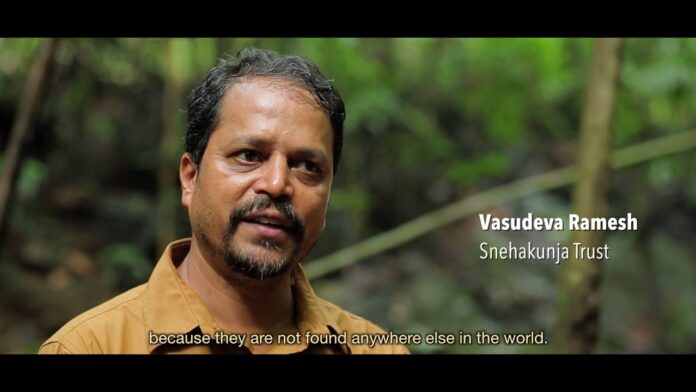Agriculture is an essential industry that provides food for the growing population and supports economies around the world. However, the impact of agriculture on the environment is often overlooked. The processes involved in producing and transporting food can have a significant effect on the environment, leading to various environmental issues. In this blog post, we will explore the environmental impact of agriculture, including water pollution, soil degradation, deforestation, and air pollution. We will also discuss solutions to minimize these impacts through sustainable agriculture practices.
Importance of Agriculture
Agriculture plays a vital role in meeting the food demands of a growing global population. According to the Food and Agriculture Organization (FAO), the world population is expected to reach 9.7 billion by 2050, and food production needs to increase by 70% to meet this demand. Agriculture not only provides food but also contributes to economic growth and poverty reduction in rural areas.
Farming also supports other industries such as clothing, pharmaceuticals, and biofuels. It is estimated that agriculture contributes to about 17% of the global Gross Domestic Product (GDP) and employs over 40% of the workforce worldwide. It is evident that agriculture is crucial for both food security and economic development.
Environmental Issues Caused by Agriculture

Unfortunately, agriculture also has negative consequences on the environment. The intensive methods of modern agriculture have led to various environmental issues, including water pollution, soil degradation, deforestation, and air pollution. These issues can have far-reaching effects on the ecosystem and human health.
Water Pollution
Water is a vital resource for agriculture, and its quality is essential for healthy crop growth. However, the use of fertilizers and pesticides in agriculture can lead to water pollution. When these chemicals are applied to crops, they can be carried away by rainwater or irrigation and enter nearby water bodies. This can cause eutrophication, where excessive nutrients in the water lead to algal blooms, which deplete oxygen and harm aquatic life.
Moreover, pesticides can also contaminate groundwater, making it unfit for human consumption. This not only affects the health of people but also has economic implications, as contaminated water sources need costly treatments.
A study by the FAO estimated that 20-30% of the world’s freshwater resources are contaminated with agricultural chemicals. This highlights the urgent need to address water pollution caused by agriculture.
Some solutions to minimize water pollution from agriculture include:
- Reducing the use of fertilizers and pesticides through integrated pest management techniques.
- Implementing precision farming practices such as drip irrigation to minimize water usage and reduce runoff.
- Promoting organic farming methods that do not use chemical inputs.
Soil Degradation
Soil is a crucial element in agriculture, providing essential nutrients for crop growth. However, modern farming practices have led to soil degradation, reducing its fertility and productivity. Intensive tilling, monocropping, and excessive use of chemical fertilizers and pesticides have all contributed to this issue.
Excessive tilling exposes the soil to erosion, leading to loss of topsoil and essential nutrients. Monocropping, where a single crop is grown continuously on the same land, depletes the soil of specific nutrients, making it less productive over time. The use of chemical inputs can also kill beneficial microorganisms in the soil, disrupting the natural ecosystem.
According to the FAO, around one-third of the world’s arable land is already degraded, affecting about 1.5 billion people. This not only affects food production but also contributes to desertification and climate change. Degraded soils release carbon into the atmosphere, contributing to greenhouse gas emissions.
To combat soil degradation, sustainable agriculture practices such as conservation tillage, crop rotation, and agroforestry should be implemented. These practices help to preserve soil fertility, prevent erosion, and promote a healthy ecosystem.
Deforestation
Deforestation is the permanent removal of trees from an area of land. Agriculture is one of the leading causes of deforestation globally, accounting for 80% of deforestation in the Amazon rainforest alone. Trees are often cleared to make way for agriculture, particularly large-scale commercial farming.
Deforestation has several negative impacts on the environment. Trees play a crucial role in regulating the water cycle, absorbing carbon dioxide, and providing habitat for wildlife. Their removal disrupts these natural processes, contributing to climate change and loss of biodiversity.
Deforestation also leads to soil erosion, as tree roots help to hold the soil together. This can cause landslides and floods, further damaging the ecosystem and affecting nearby communities.
To tackle deforestation, sustainable land-use practices should be adopted. This includes promoting agroforestry, where trees are integrated into farming systems, and avoiding the conversion of forests for agriculture.
Air Pollution
Air pollution from agriculture primarily comes from the burning of crop residues and fossil fuels used in machinery. These activities release harmful pollutants, such as nitrogen oxides, sulfur dioxide, and particulate matter, into the air. These pollutants can have adverse effects on human health, causing respiratory problems and aggravating existing conditions such as asthma.
Agriculture is responsible for about 14% of global greenhouse gas emissions, which contribute to climate change. The use of fertilizers, especially nitrogen-based fertilizers, emits nitrous oxide, a potent greenhouse gas. Livestock farming is also a significant source of methane, another potent greenhouse gas.
To reduce air pollution from agriculture, farmers can adopt sustainable practices such as conservation tillage, which reduces the need for burning crop residues. Improved machinery and techniques can also help to minimize emissions from farm operations. Moreover, reducing meat consumption and encouraging plant-based diets can also help to lower greenhouse gas emissions from the livestock sector.
Solutions to Minimize Environmental Impact

It is evident that agriculture has a significant impact on the environment. However, there are solutions available to minimize these impacts and promote sustainable farming practices.
Sustainable Agriculture Practices
Sustainable agriculture is a holistic approach that aims to produce food while preserving the environment and promoting economic and social well-being. It involves utilizing resources efficiently, minimizing waste, and reducing negative environmental impacts.
Some sustainable agriculture practices include:
- Conservation tillage: This involves minimal disturbance of the soil by leaving crop residues in the field, which helps to reduce erosion and improve soil health.
- Crop rotation: Growing different crops in sequence helps to replenish soil nutrients and prevent the build-up of pests and diseases.
- Agroforestry: Planting trees alongside crops can provide multiple benefits such as improving soil health, providing shade for livestock, and sequestering carbon.
- Integrated pest management (IPM): This approach utilizes a combination of biological, cultural, and chemical methods to manage pests and diseases in crops.
- Precision farming: Using technology such as GPS and sensors to optimize inputs, reduce waste, and increase efficiency.
By implementing sustainable agriculture practices, farmers can minimize their environmental impact and ensure the long-term viability of their land.
Government Policies and Incentives
Governments play a crucial role in promoting sustainable agriculture practices. They can do this through policies and incentives that encourage farmers to adopt sustainable methods. For example, offering financial support or tax breaks for farmers who use conservation tillage or promote agroforestry.
Moreover, governments can also regulate the use of fertilizers and pesticides to minimize their environmental impact. By setting limits and monitoring their use, they can help to reduce water pollution and protect human health.
Consumer Choices
Consumers also have a role to play in minimizing the environmental impact of agriculture. By choosing to buy organic and locally produced food, they can support sustainable farming practices. This not only benefits the environment but also helps to support small-scale farmers.
Consumers can also reduce their food waste by planning meals and buying only what they need. Food waste contributes to greenhouse gas emissions, and by reducing it, we can help to mitigate climate change.
Conclusion
Agriculture is essential for meeting the global demand for food and supporting livelihoods. However, it also has a significant impact on the environment, contributing to various issues such as water pollution, soil degradation, deforestation, and air pollution. To minimize these impacts, sustainable agriculture practices should be adopted, and governments and consumers should support and promote these practices. By working together, we can ensure a sustainable future for both agriculture and the environment.








